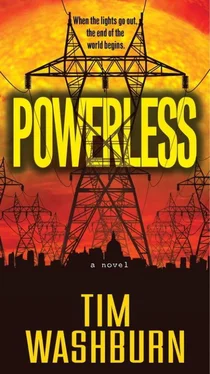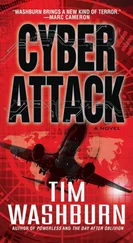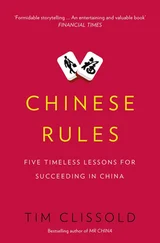Summer bursts out laughing. “A couple of days until you’re back?” she says, shielding her eyes from the sunlight.
“If you don’t mind us stopping.”
“I’ll be angry if you don’t.”
He gives Murphy a little tap with his heels and the gelding leads them away from the barn and onto the gravel drive. After a wave, he and the horses take to the deserted ribbon of asphalt while his brain cartwheels through a confusing number of emotions.
Three hours of riding brings them to the outskirts of Frisco. From his position atop Murphy he can see where the Dallas North Tollway begins off to the west. But it no longer resembles a major highway—the road more closely resembles an overcrowded mall parking lot two days before Christmas. The trailer doors on the big rigs are flung open and the foul odor of decay drifts on the breeze. Zeke doesn’t know if the stench is related to spoiled food or something worse.
The road he’s traveling, 289 south, cuts through the heart of Frisco, Texas. Their progress slows as he walks the horses around more abandoned vehicles. Neighborhoods dot the landscape and Zeke loosens the Glock, but leaves it holstered. Up ahead he spots a group of people walking along the side of the road. He reaches down and slides the Kimber rifle out a few inches for easier access. Zeke steers Murphy toward the opposite yellow line as they near the group. He relaxes slightly when he discovers the group to be five teenage girls, none older than about sixteen. He waves in passing and one or two of the girls shout for a ride while the others giggle.
He clears downtown Frisco with no further encounters. The weather is not blistering hot, but it is hot enough to be uncomfortable. Murphy is lathered around the edges of the saddle blanket and Zeke’s shirt clings to his back. He pulls the map from his pocket and checks their progress, trying to determine how much farther to the outskirts of Dallas proper. Best as he can tell they’re about twenty-five miles north of his sister’s house. He glances up at the sun and estimates the time—past midmorning—closer to noon than ten. If he pushes the horses a little harder they might reach Ruth’s house sometime well after nightfall. That would spare them from having to find another place to bed down for the night. He turns in the saddle to check on Ruby and Tilly and they appear to be holding up well. Murphy’s the one he’s worried about. He decides to play it by ear and not overburden the horses.
As they slog along, Zeke begins searching for a water source somewhere up ahead. A few more people are out and about, but well off the main road. No threats are pinging his radar. The road weaves back through a commercial area and he passes an Olive Garden, a Red Lobster, and an Outback Steakhouse. What once were windows or doors are now plastered with heavy plywood tagged with graffiti. It’s bizarre seeing all the businesses that only a short time ago would have been getting ready to serve an overindulgent meal. Now they’re abandoned, left to crumble in place.
The next block offers two shuttered banks and, for a brief moment, he thinks about money. Or, in his case, the lack thereof. Most everything will be based on barter for the near future. His thoughts turn to the fabulously wealthy people who inhabit portions of Dallas, including those who have purchased one of his hand-built tables. No food to buy, no trips to the mall, nothing on which to spend their vast sums of money. The playing field is leveled—socioeconomic barriers thrust aside.
The next block is more of the same, with all types of shuttered retail establishments, including a Home Depot and a Best Buy. Sunlight glints off something the next block down, near the entrance to another restaurant. The horses surge that way and he tugs gently on the reins to slow Murphy. The glint turns out to be a small pond with a fountain at its center. The mermaid’s mouth is dry and crusty but plenty of water remains. He slides off Murphy as the three horses eagerly begin to drink. A few colorful fish are swimming around the bottom, but the horses pay them no mind. Zeke wonders how long it will be before those fish end up on a spike of wood over a fire.
Being out of the saddle brings brief relief to his sore behind. He arches his back and wiggles his hips to loosen up, then takes off his cowboy hat and mops his brow. As the horses drink, he seeks refuge under an overgrown holly bush for a little relief from the interminable sun. Once the horses have drunk their fill, Zeke takes a sip of water from his canteen. He’s running low on water but there’s no way in hell he’s drinking from the pond. With reluctance, he remounts Murphy and steers him back on the road as his eyes continually scan for threats.
The White House Situation Room
President Harris makes his way back to the Sit Room around four in the afternoon, slightly ahead of the twenty-four-hour delay that Admiral Hickerson had requested. His blue button-down shirt is open at the collar and the shirtsleeves are folded up nearly to his elbows. Under direct orders from his wife, they had enjoyed a long, private lunch and an escape upstairs to the residence for an afternoon tryst. As he waits for others to arrive, he exhales a contented sigh, thinking how lucky he is to have Katherine Harris in his life. She is far more than a wife. She is an equal partner in the marriage, a sounding board full of creative ideas, a wonderful mother to their daughter, and an enduring opti—
The President is stirred from his reverie when a steady stream of haggard military personnel trudges into the room. He reaches forward to pour himself a cup of coffee and calls the meeting to order. All the regulars are in attendance, a veritable who’s who of the nation’s top brass, with their aides lined up along the outer wall. Most of the military aides are dressed in shirtsleeves and their ties are loosened. Except for Admiral Hickerson, who is wearing a somewhat rumpled full dress uniform with the tunic buttoned up to his throat. All the requisite stars are attached to shoulder boards and buttoned in place.
President Harris takes a tentative sip of his hot coffee. “Admiral, what’s the status?”
The admiral clears his throat, and when he speaks his voice is raspy. “We’re ready to go, sir. We hit a small snag in getting enough drone pilots on location because of the satellite issues. We’ll rely on the Common Data Link for field communications but we won’t be able to view real-time video feeds here in the Situation Room. Strike Group One is in range and all ships and carriers are ready for battle-station alert upon your order.”
“What about the Israelis?”
“They’re champing at the bit, sir,” Admiral Hickerson says.
Israeli Ambassador Har-Even had been invited to this afternoon’s briefing but is not yet present.
“Are the Iranians offering air support to their troops?”
“Yes, sir. But they only have a couple of hundred aircraft available to them. A majority of their fighters are at least a decade old, and many much older. They’re sloppy with their maintenance program, which leads me to believe the number of flyable aircraft could be much lower. Nevertheless, a good portion of their aircraft will be destroyed within the first hour of battle.”
The President places his coffee cup on the table. “Will we be able to listen in on real-time radio communications?”
“Some, sir, but not all. For the first time since World War II, we’ll need to rely on commanders in the field to make the important decisions. I trust them to do so, sir. They know their mission and I’m more than willing to put the nation’s safety in their hands.”
“I am, too, Admiral, but that doesn’t mean we are out of the loop.”
Читать дальше












